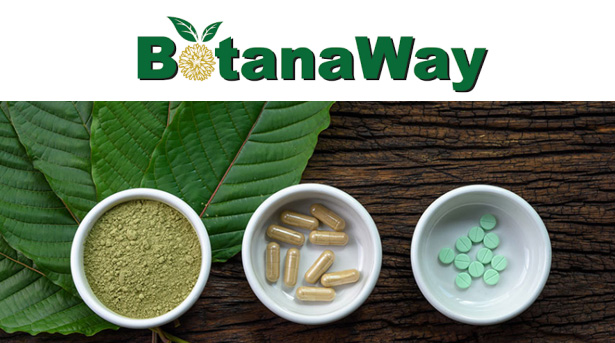
Botanaway
www.botanaway.com
sales@botanaway.com
Offers insight from the American
Kratom Association
Kratom is a plant that has been safely consumed for centuries in
Southeast Asia. Farm laborers found that picking and chewing a
kratom leaf gave them a boost of energy to get through long days
of working in the fields and relieved the aches and pain every
laborer feels after a hard day of work.
Kratom was first introduced into the United States in the
early 1970s when American soldiers brought it home because
they found the same benefits as field laborers as they slogged
through jungles in Vietnam, and with the Hmong families who
immigrated here.
Like many other plants, dietary ingredients, and supplements,
kratom was targeted early on by the FDA because they don’t
like any natural product that cannot be converted easily into
a chemically formulated drug. With kratom, the FDA has
launched a barrage of disinformation, distorted claims of
deaths, and completely ignores the science that contradicts their
distorted view about kratom.
But consumers speak loudly. The demand for kratom as
expanded dramatically despite the FDA’s disinformation
campaign. The reason is simple. The 11 -16 million kratom
consumers find kratom to be an preferred alternative to coffee
as a morning pick-me-up and increased focus; for relaxation
and reducing anxiety; and for consumers struggling with pain
issues, it helps those addicted to opioids to reduce withdrawal
symptoms and eventually manage their pain issues with kratom.
A 2020 Johns Hopkins research study showed 35 percent of
those using kratom to treat opioid dependence were free from
opioids within a year.
Today, the FDA is alone at the federal level in their war on
kratom. The DEA has refused to act on their scheduling
recommendation. The National Institutes on Drug Abuse
(NIDA) Director testified before Congress that kratom should
not be scheduled, and Congress specifically discouraged
scheduling and called for more research. Critically, NIDA
funded studies revealed that kratom does not have a significant
addiction liability required for scheduling and that the animal
studies showed kratom reduced the cravings for the reference
drug, morphine.
So pure kratom that is not adulterated or contaminated is safe
for consumers. The FDA is wrong on the science, and wrong on
the policy. NIDA is right, and so is the Congress.
Consumers should have the freedom to choose safe products
to maintain their health and well-being. The American Kratom
Association (AKA) advocates for consumers to have that choice.
Mac Haddow
Senior Fellow on Public Policy
American Kratom Association
